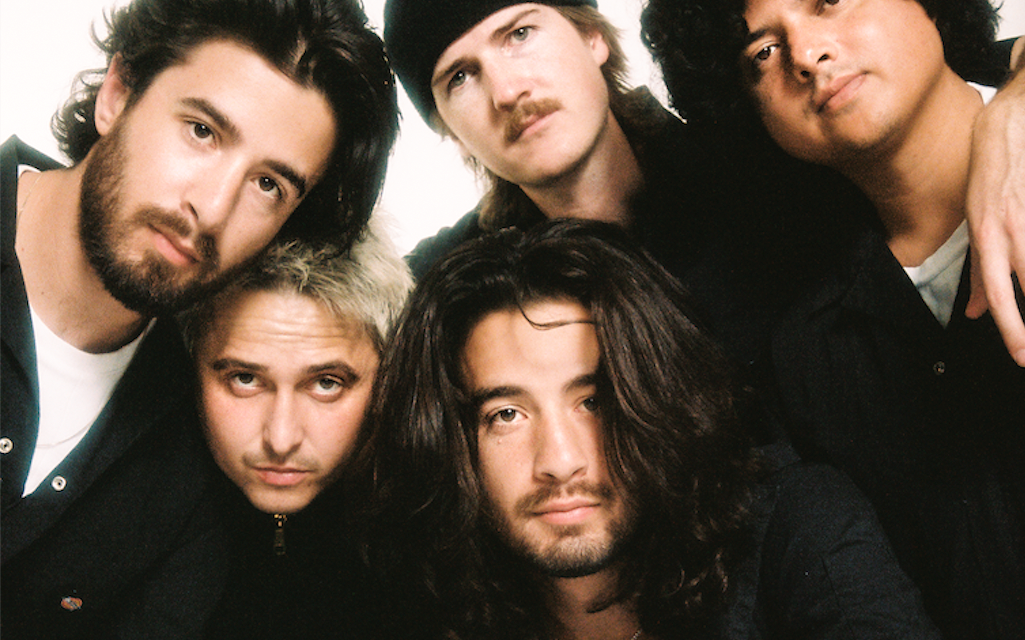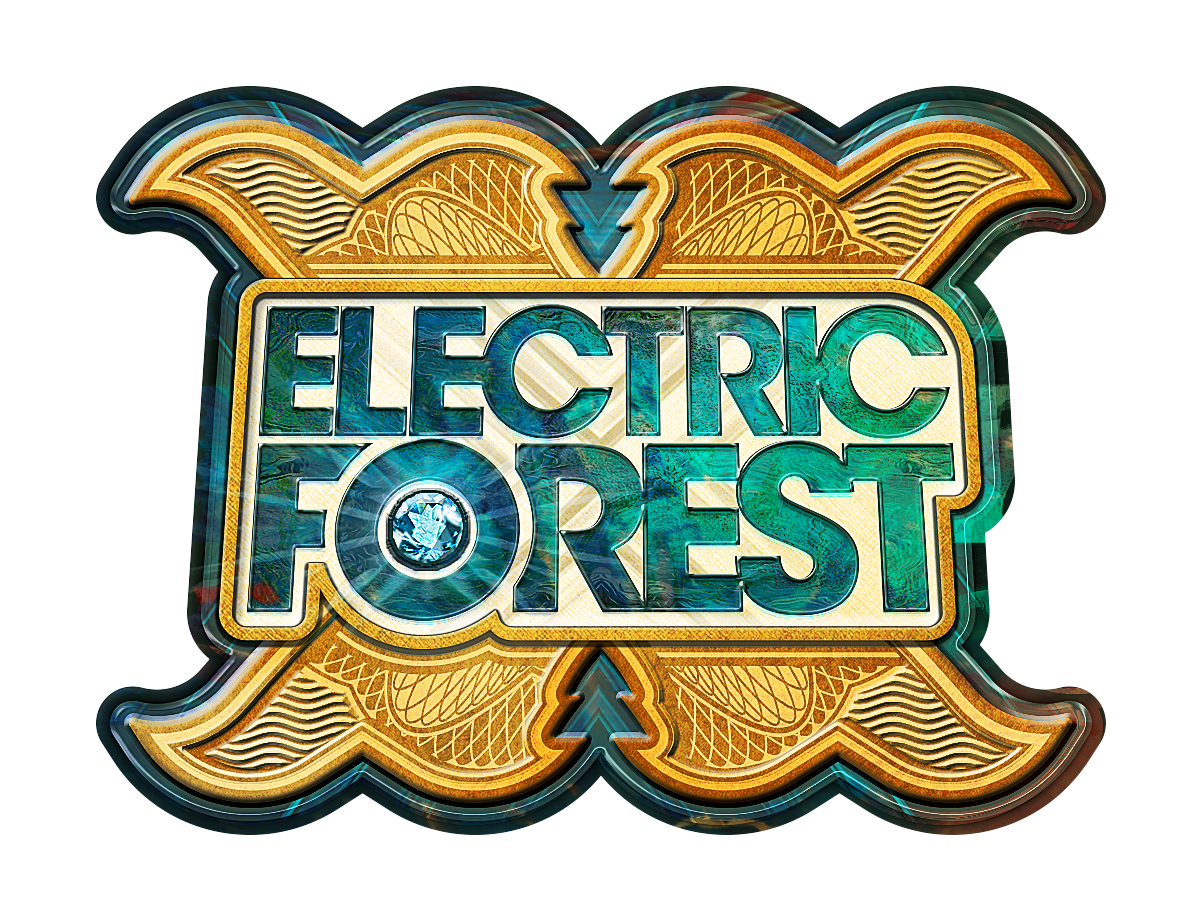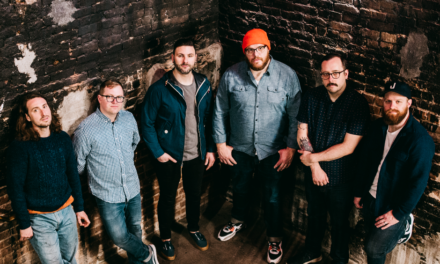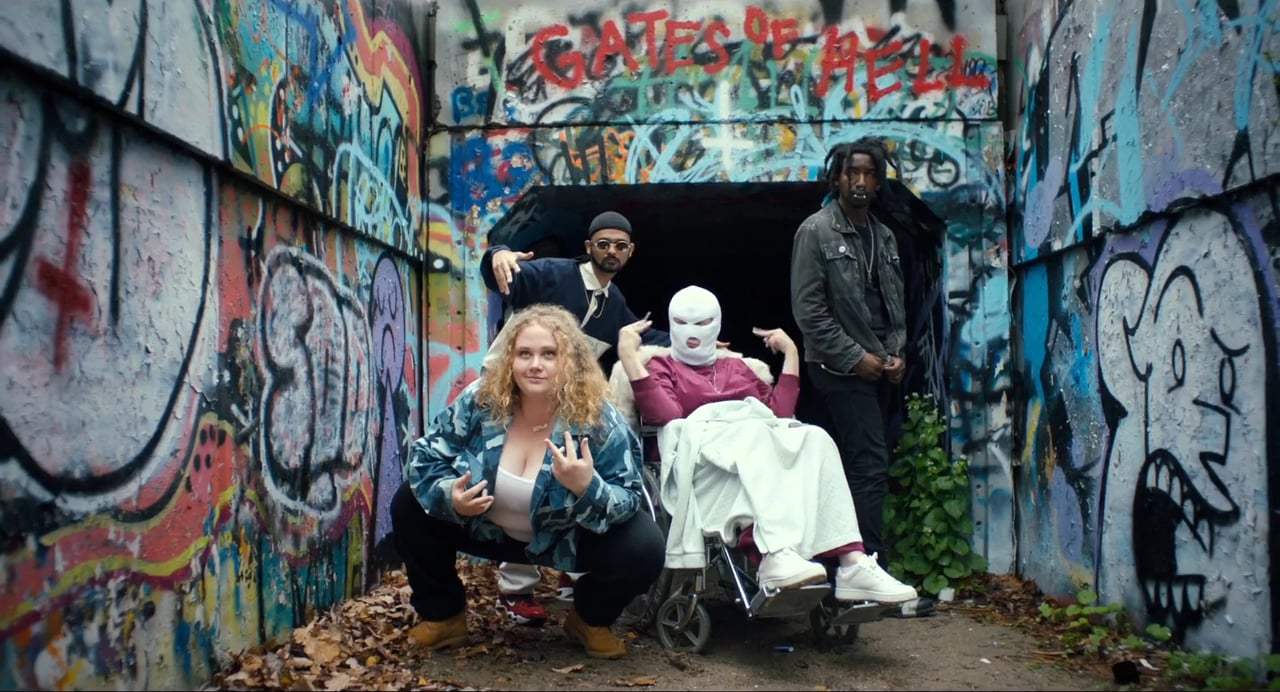Urgency is defined as a force or impulse that impels or constrains. We’ve all felt the push and pull of urgency at many stages of our lives, and they only grow more intense as each birthday passes. Indie-pop band Clubhouse felt different urgency during the formulation of their new EP, Are We Going Too Slow. Frontman Max Reichert was diagnosed with osteosarcoma, a rare type of bone cancer. While he was cancer-free for a while, it returned in 2020. On top of dealing with the ongoing fallout of the COVID pandemic, Reichert needed additional chemotherapy for Reichert. However, Reichert and his fellow band members, guitarist Ari Blumer, bassist Michael Berthold, drummer Zak, and keyboardist Forrest Taylor, didn’t let this slow them down. Thus, while getting treatment, the band worked on tracks that would later land on their new collection of songs.
Time seems to encase you in a protective bubble when you are younger. The most pressing issue might be what video game you want to play with your friends or what to wear to school the next day. As you get older, the clock’s hands seem to fly out of control. Almost separating you from the optimistic, idealistic youth we all once were. Things like bills, careers, and disease complicate things. Through the muck and bleakness, Clubhouse used music as a tool to turn back the clock. The circumstances brought the band closer together and infused a playful, uplifting tone for the project that was contrary to what they were going through. Rather than bend the knee to difficulty, they danced on top of it.
If Mr. Hudson sung wishes to bask in his youthfulness on Jay-Z’s 2009 song, “Young Forever,” then Clubhouse is an entity that strives to embrace that spirit. We spoke to the band about Are We Going Too Slow, young love, getting older, and everything in between.
The title, Are We Going Too Slow, feels like it has a two-pronged meaning – both speaking about 2020 and Max’s fight with bone cancer. In the larger view, the pandemic has sped up our internal clock to do things and, in turn, within Clubhouse itself. There’s a genuine sense of urgency to it, given the collective stuff you’ve all been through together. Now that the EP is out, how do you feel about the title choice now?
Max: I think we accurately represented what we’re feeling in that time and continuing to feel. Because of COVID, everyone’s feeling that way. I think it’s also natural to feel like that as a person going through your 20s. Where you’re figuring out who you are, what you want to do with your life, and who you want to surround yourself with. Time is precious. When you add cancer into the mix, being a band for three years and cancer getting in the way of that, it’s been heightened for us.
I think it’s just a good reminder. Something that we can go back to and listen to now that we’ve finished. Once we perform these songs live, it’ll just be a constant reminder of thinking big picture. Also, thinking about taking time to be around friends and family – surrounding yourself with positivity and things that matter to us the most because time is precious. This EP helped a lot of us get through this year.
Ari: As you said, there’s a sense of urgency with the phrase, but at the same time, it’s left up to the interpretation of whether that urgency goes. Should it be focused on doing things you think will further your career? Or, as Max was saying, spending time with the people that matter and making sure that your priorities are straight, so you’re going at just the right speed.
Clubhouse had a year-long break before releasing a healthy amount of singles before releasing the entire EP. Was it a decision collectively to do the more slow-burn rollout?
Max: We didn’t want to rush it. Sometimes, if you release an EP too soon, it can get lost in the void. We just wanted to make sure that when we put out a first project, we will have the right partners in place. So we teamed up with AWAL, which was cool. That gave us the resources to give the project the push we wanted to – to do it the right way with the music videos and promo. We didn’t want to half-ass it. Yeah. So it just felt like the right time to wait until an entire year and some change later. It also ties into the whole EP title. Because if the entire time that we didn’t have the project we’re asking, are we taking too long?
When you listen to this EP as a whole, it touches on things like heartbreak and the trials of getting older. However, there’s a cheerful palette as far as the instrumentation goes. It gives the sense of dancing in the rain and jumping in the puddles on the way.
Max: Yeah, yeah, I think so. Adding dancy, carefree instrumentation under some of the subject matter that we talked about is synonymous with what the entire message is, I feel. Even though there might be intense things happening, you can take time to think about it positively. Roll with the punches and dance and smile with your friends through difficult times. I think that’s kind of where I was at as well. We all love dance music. Not only could it be a distraction from some cruelties of life, but it’s such an essential part of our lives, so we wanted to convey that.
Ari: The juxtaposition was intentional. I think you hit the nail on the head, Max, when you’re talking about just not taking these things too seriously. The purpose was to talk about these things that affect many people and to show that you’re not alone as a listener. To say, “we relate to you.” A lot of 20-year-olds go through the same things. But, there are things that are going to matter in life and things that we waste our time preoccupying our brains with that don’t.
Going off of that, the title track touches on a dichotomy of being in seventh grade and being carefree as opposed to being in your 20s, where there’s a lot of uncertainty. When we’re younger, it seems like time stands still, but as we grow up, we can never have enough of it. “Home Videos” talks about keeping the kid inside us alive with a carpe diem attitude.
Zak: 100%. When we wrote the lyrics to the title track, we considered it the same as the EP. Those lyrics were all-encompassing of the concept. This idea is that you don’t have any worries when you’re young. You’re not stressed out about anything, and you’re just exploring the world – dreaming big picture stuff. Then things like cancer and COVID come up, and suddenly, it consumes every thought you have.
I remember when we were at the beginning of the pandemic, everything that you would talk about in the future, or the current setting, was somehow related to COVID. You’d have to talk about COVID; you’d have to talk about cancer that we were dealing with. All of those things were pressing in on every tiny, minute detail of everyday life and decisions you made. So, this sort of juxtaposition between the carefreeness you start out with and this pressure from societal standards. You have to be reaching some goal, but deal with having all these roadblocks in your way.
When you take a step back and look at it, you wonder if that’s the goal. Is your plan to get to this, achieve this status, this job that you’re looking for, or this career path? Or perhaps the goal is more of the journey? Not to be cliché, but especially after going through all this together, looking at our dreams didn’t feel the same. It felt like what we gained from that experience was being closer to one another and relating to each other on the same wavelength.
Max: Yeah. To piggyback off of that, I think it’s cool that you kind of pointed out “Home Videos” and “Are We Going Too Slow,” having that juxtaposition of the mindset of a kid versus someone that in their 20s. We did that on purpose. With “Home Videos,” we wrote from the point of view of us still being naïve. You believe that every person you meet is going to be your wife.
I remember just having so many just irrational crushes in middle school and high school. As you get older, your brain works harder and thinks about all the things that could go wrong. You stop thinking less in the moment. I think we should all try to get back a little of that naivety that you have as a kid, where you’re not afraid to go after what you want or draw something. I think there are so many things that come with getting older and stuff that can make you jaded. We always want to strive to keep that like little kid inside us just out in the open as much as we can.
I like that the songs “Heartbroke” and “You Were Never Mine” touch on the naivety of adolescent love. When we have love as a concept when we’re young, the word “forever” comes into play a lot. We think the first person we meet will be the one we’ll always stay will, but when you get older, you find that romance is more complicated than that.
Max: Both songs touch on how you go through this huge honeymoon phase every time you get a new relationship. The little kid inside you is so stoked that it usually takes a while, but life gets messy. Just because it inherently is, and some complications come with that. Sometimes it’s not either person’s fault, and life happens. We were further trying to touch on that journey from being a kid to growing up.
Ari: I think it might have been Mike who initially said this – to me, “Home Videos” is very much like you said. The naïve young kid who thinks everything’s going to last forever. Then “Heartbroke” sort of catches you in the middle of realizing that relationships aren’t that simple. It can get crazy and also drive you crazy. You get in your head about it and get mentally freaked out. Then you realize that it didn’t work out. And that’s okay. That’s a more adult viewpoint.
The recording process for Are We Going Too Slow was different, given Max’s fight with bone cancer. The band would visit the hospital to work on tracks together. I would imagine that the intimacy of having a close friend go through something dire can make the process scary, but add a more profound attachment to these songs.
Max: I can speak for all of us when I say music is our therapy. So for me, when I was going through surgeries, the only thing that would make me feel a sense of normalcy was working on music with the guys. It’s everything we want our lives to be, so it was a no-brainer for us. If I didn’t have music during this stuff, I don’t know if I could even get through it. But, having the guys and getting home from the hospital, listening to some songs that we were working on, or laying down a guitar riff or something – that’s what helps heal us. It was an essential thing for us to keep working on music.
Ari: Speaking as someone who didn’t go through it directly and on the other side of things, we were all there riding with Max. Part of it realized how important music was to us through that. Music was a pillar for us that we needed to keep strong. It held us up, going through some pretty tough shit at the time. So, I think it was both already knowing that it was significant and doing it, but this continued realization of how important it was.
Photo Credit: Dillon Mathew













